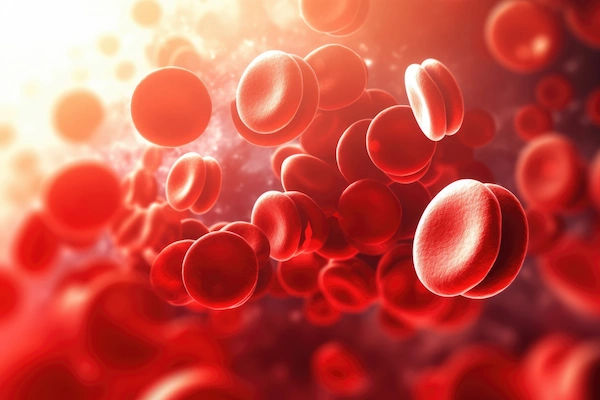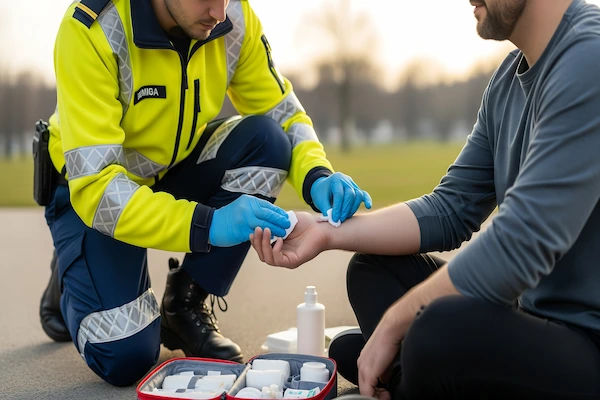IgM Antibody Overview and Testing Information
Learn about IgM antibodies, their role in the immune response, and how IgM testing helps detect recent infections and monitor immune system activity.

Written by Dr. J T Hema Pratima
Reviewed by Dr. D Bhanu Prakash MBBS, AFIH, Advanced certificate in critical care medicine, Fellowship in critical care medicine
Last updated on 13th Jan, 2026

When it comes to our immune system, antibodies play a crucial role in protecting us from infections. One such important antibody is IgM (Immunoglobulin M). If you've heard about IgM testing or have been advised to get it done, you might be wondering what it means and why it matters. In this article, we’ll break down everything you need to know about IgM antibodies in simple terms.
What Are IgM Antibodies?
IgM antibodies are the first line of defense your body produces when it encounters a new infection. Think of them as the "rapid response team" of your immune system—they quickly identify and attack harmful invaders like bacteria or viruses.
Key Features of IgM Antibodies:
Early Responders: They appear soon after infection (usually within a week).
Short-Term Protection: IgM levels rise quickly but decline as the body produces other antibodies (like IgG) for long-term immunity.
Large Size: IgM antibodies are bigger than other antibodies, helping them effectively trap pathogens.
Consult a Top Specialist
Why Is IgM Testing Important?
Testing for IgM antibodies helps doctors determine if you have a current or recent infection. This is especially useful for diagnosing diseases like:
Viral infections (e.g., dengue, Zika, COVID-19, hepatitis)
Bacterial infections (e.g., Lyme disease, syphilis)
Autoimmune disorders (e.g., lupus, rheumatoid arthritis)
Get Your Health Assessed
How Is IgM Testing Done?
The test is simple and just a blood sample is taken and analyzed in a lab. Results can help doctors confirm an active infection and decide on the right treatment.
Symptoms That May Require IgM Testing
If you experience any of the following, your doctor might recommend an IgM test:
Fever, fatigue, body aches (signs of viral/bacterial infection)
Rashes or joint pain (possible autoimmune condition)
Recent exposure to an infectious disease
What Do IgM Test Results Mean?
Positive IgM: Likely indicates a current or recent infection.
Negative IgM: Suggests no active infection, but further tests (like IgG) may be needed.
High IgM Levels: Could signal an ongoing infection or an autoimmune disorder.
Your doctor will interpret the results along with symptoms and other tests for an accurate diagnosis.
How Can You Support Your Immune System?
While IgM antibodies do their job, you can help your immune system stay strong by:
Eating a balanced diet (rich in fruits, vegetables, and proteins)
Staying hydrated
Getting enough sleep (7-9 hours daily)
Managing stress (through meditation, exercise, or hobbies)
Avoiding smoking and excessive alcohol
When Should You Consult a Doctor?
If you have persistent symptoms like fever, fatigue, or unexplained illness, it’s best to get tested. Early detection helps in faster recovery.
Book a Test or Consultation with Apollo 24|7
If you suspect an infection or need an IgM test, you can easily schedule a lab test or doctor consultation through Apollo 24|7. Their expert healthcare professionals will guide you with the right diagnosis and treatment.
Final Thoughts
IgM antibodies are your body’s first responders against infections. Understanding their role and getting timely testing can help in early diagnosis and better health outcomes. If you have concerns about your immune health, don’t hesitate to reach out to a healthcare provider.
Consult a Top Specialist
Consult a Top Specialist

Dr. Rajib Ghose
General Physician/ Internal Medicine Specialist
25 Years • MBBS
East Midnapore
VIVEKANANDA SEBA SADAN, East Midnapore

Dr. Dhanraj K
General Physician/ Internal Medicine Specialist
25 Years • MBBS, MD Internal Medicine - Osmania Medical College, Hyderabad
Hyderabad
Apollo Hospitals Jubilee Hills, Hyderabad
(400+ Patients)

Dr. Vivek D
General Physician
4 Years • MBBS
Bengaluru
PRESTIGE SHANTHINIKETAN - SOCIETY CLINIC, Bengaluru

Dr. Vijay Bhola
General Practitioner
13 Years • MD (Physician), Fellowship in intensive care medicine
New Delhi
Maple Care, New Delhi
(150+ Patients)

Dr. Ramyajit Lahiri
General Physician/ Internal Medicine Specialist
7 Years • MBBS,MD
New Town
AESTHETICAROOTS, New Town





